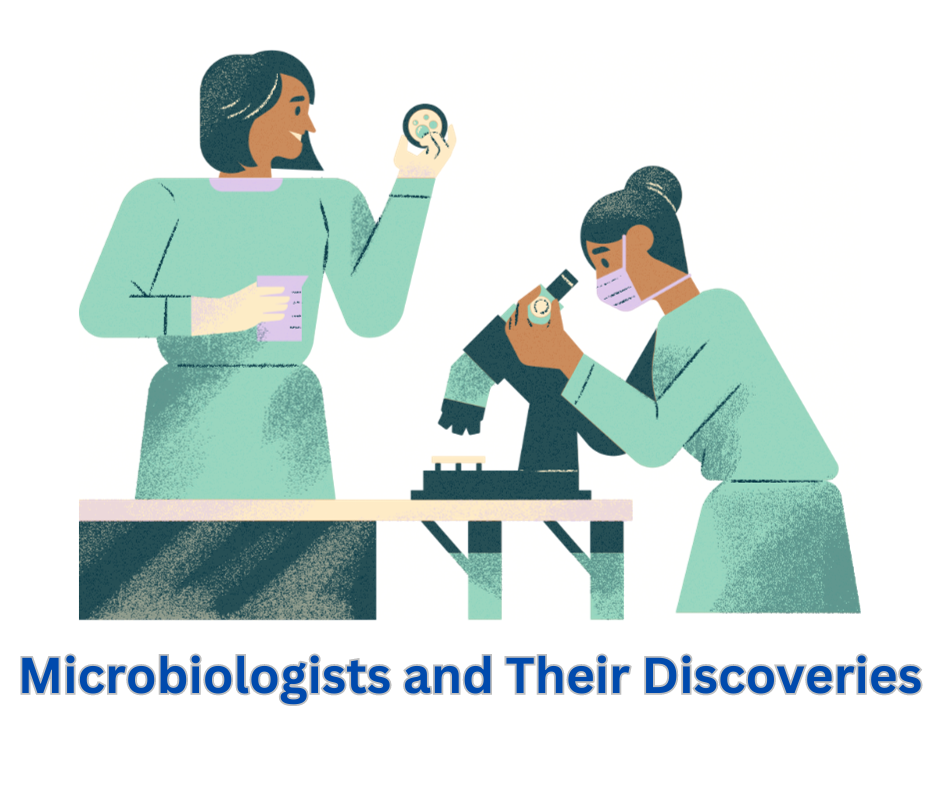Introduction
Microbiology, the study of microscopic organisms, has been a field of incredible discovery and innovation. Throughout history, brilliant minds in microbiology have made groundbreaking contributions, revolutionizing our understanding of life at the microscopic level.

1. Antonie van Leeuwenhoek (1632–1723): Father of Microbiology
- Discovery of Microorganisms: Antonie van Leeuwenhoek, a Dutch tradesman and scientist, is credited with inventing the microscope and being the first to observe microorganisms. In the 17th century, he examined water samples and dental plaque, describing the microscopic world for the first time.
- Contributions: Van Leeuwenhoek’s meticulous observations laid the foundation for microbiology, opening new realms of inquiry into the unseen world of microbes.
2. Louis Pasteur (1822–1895): Germ Theory and Vaccination Pioneer
- Germ Theory of Disease: Louis Pasteur’s groundbreaking work on the germ theory of disease revolutionized medicine. He demonstrated that microorganisms were responsible for diseases and developed methods of sterilization to prevent microbial contamination.
- Vaccination: Pasteur’s development of vaccines for diseases like rabies and anthrax laid the groundwork for immunology, saving countless lives and establishing the field of vaccinology.
3. Robert Koch (1843–1910): Koch’s Postulates and Tuberculosis
- Koch’s Postulates: Robert Koch formulated a set of postulates to establish a causal relationship between a microorganism and a disease. This methodology became a standard for identifying the pathogens responsible for various illnesses.
- Tuberculosis Discovery: Koch’s identification of the bacterium causing tuberculosis (Mycobacterium tuberculosis) marked a pivotal moment in the understanding and control of infectious diseases.
4. Alexander Fleming (1881–1955): Penicillin and Antibiotics
- Discovery of Penicillin: Alexander Fleming’s accidental discovery of penicillin in 1928 revolutionized medicine. Penicillin became the first widely used antibiotic, saving countless lives by combating bacterial infections.
- Antibiotic Era: Fleming’s work ushered in the antibiotic era, transforming the landscape of medicine and leading to the development of numerous other antibiotics.
5. Paul Farmer (1959–2022): Infectious Disease and Global Health Advocate
- Co-founder of Partners In Health: Paul Farmer, an anthropologist and physician, co-founded Partners In Health, an organization dedicated to providing healthcare to impoverished communities.
- Work in Infectious Diseases: Farmer’s work focused on addressing infectious diseases, particularly tuberculosis and HIV/AIDS, in resource-limited settings.
6. Rita Colwell (1934–Present): Environmental Microbiology and Cholera Research
- Cholera Research: Rita Colwell’s research in environmental microbiology significantly contributed to our understanding of cholera’s ecology. She pioneered the idea that cholera is linked to environmental factors like plankton.
- Impact on Water Safety: Colwell’s work has influenced water safety policies, demonstrating the importance of considering environmental factors in preventing waterborne diseases.
7. Stanley Falkow (1934–2018): Molecular Microbiology and Bacterial Pathogenesis
- Molecular Basis of Infection: Stanley Falkow’s work focused on understanding the molecular mechanisms of bacterial infections. He made significant contributions to the field of bacterial pathogenesis.
- Antibiotic Resistance: Falkow’s research also delved into antibiotic resistance, addressing the growing concern of drug-resistant bacterial strains.
8. Emmanuelle Charpentier and Jennifer Doudna: CRISPR-Cas9 Gene Editing
- CRISPR-Cas9 Revolution: Emmanuelle Charpentier and Jennifer Doudna’s collaborative work led to the development of the revolutionary CRISPR-Cas9 gene-editing technology.
- Impact on Biotechnology: CRISPR-Cas9 has transformed genetic engineering, offering precise and efficient tools for gene modification with broad implications for medicine, agriculture, and biotechnology.
Conclusion
Microbiology owes much of its progress to the dedication and groundbreaking discoveries of these pioneering scientists. From the early observations of Leeuwenhoek to the gene-editing revolution brought about by Charpentier and Doudna, each microbiologist has left an indelible mark on the scientific landscape. As we continue to unlock the mysteries of the microbial world, these contributions serve as a testament to the profound impact that microbiologists have had on our understanding of life and the tools available to improve global health.
